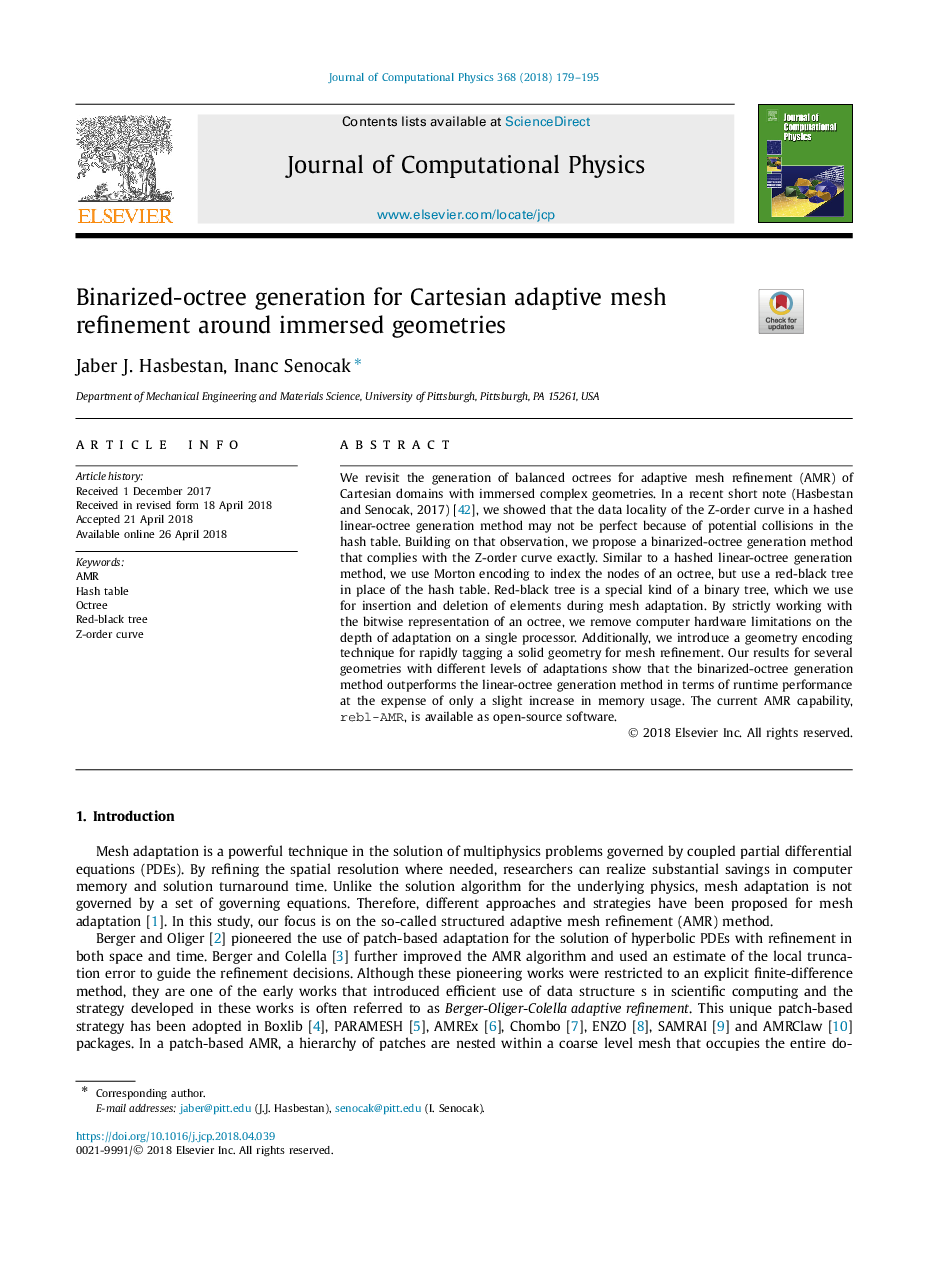| کد مقاله | کد نشریه | سال انتشار | مقاله انگلیسی | نسخه تمام متن |
|---|---|---|---|---|
| 6928753 | 1449345 | 2018 | 17 صفحه PDF | دانلود رایگان |
عنوان انگلیسی مقاله ISI
Binarized-octree generation for Cartesian adaptive mesh refinement around immersed geometries
دانلود مقاله + سفارش ترجمه
دانلود مقاله ISI انگلیسی
رایگان برای ایرانیان
کلمات کلیدی
موضوعات مرتبط
مهندسی و علوم پایه
مهندسی کامپیوتر
نرم افزارهای علوم کامپیوتر
پیش نمایش صفحه اول مقاله

چکیده انگلیسی
We revisit the generation of balanced octrees for adaptive mesh refinement (AMR) of Cartesian domains with immersed complex geometries. In a recent short note (Hasbestan and Senocak, 2017) [42], we showed that the data locality of the Z-order curve in a hashed linear-octree generation method may not be perfect because of potential collisions in the hash table. Building on that observation, we propose a binarized-octree generation method that complies with the Z-order curve exactly. Similar to a hashed linear-octree generation method, we use Morton encoding to index the nodes of an octree, but use a red-black tree in place of the hash table. Red-black tree is a special kind of a binary tree, which we use for insertion and deletion of elements during mesh adaptation. By strictly working with the bitwise representation of an octree, we remove computer hardware limitations on the depth of adaptation on a single processor. Additionally, we introduce a geometry encoding technique for rapidly tagging a solid geometry for mesh refinement. Our results for several geometries with different levels of adaptations show that the binarized-octree generation method outperforms the linear-octree generation method in terms of runtime performance at the expense of only a slight increase in memory usage. The current AMR capability, rebl-AMR, is available as open-source software.
ناشر
Database: Elsevier - ScienceDirect (ساینس دایرکت)
Journal: Journal of Computational Physics - Volume 368, 1 September 2018, Pages 179-195
Journal: Journal of Computational Physics - Volume 368, 1 September 2018, Pages 179-195
نویسندگان
Jaber J. Hasbestan, Inanc Senocak,